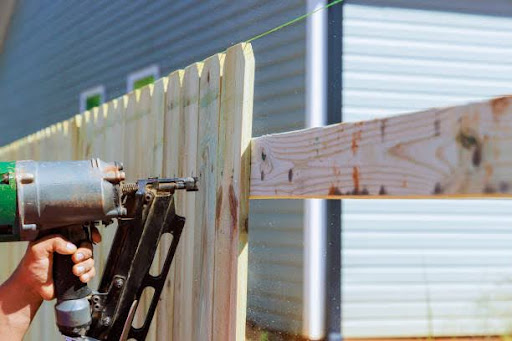Selecting the right fence for your property involves more than just aesthetics. The perfect fence should meet your specific needs, whether they involve security, privacy, or enhancing your home’s curb appeal.
Here are five essential considerations to guide you in choosing the right fence for your particular requirements.
Determine the Purpose of the Fence
The first step in choosing the right fence is to clearly define its purpose. Are you looking to secure your property, increase privacy, keep pets or children safe, or simply enhance the look of your home? Each of these needs will dictate different fence options.
If you are focused on aesthetic appeal, a decorative wooden or wrought iron fence might be more suitable. By understanding the primary purpose of your fence, you can narrow down your choices and find the best fit.
Consider the Material
Fences come in a variety of materials, each with its own set of advantages and disadvantages. Wood fences are popular for their natural beauty and versatility, but they require regular maintenance to prevent rot and weather damage. Vinyl fences are low-maintenance and durable, making them an excellent choice for busy homeowners who want a clean, modern look.
Whereas metal fences, such as aluminum or wrought iron, offer high security and can be designed to be both decorative and functional. Consider the material that best suits your needs in terms of maintenance, durability, and style.
Evaluate the Level of Privacy You Need
Privacy is a significant factor for many homeowners when selecting a fence. If you live in a densely populated area such as a town in Florida or simply want to create a secluded outdoor space, you can customize a solid panel fence made with wood or vinyl from a fence company in Florida.
On the other hand, if you want to maintain a sense of openness while still delineating your property, a fence with gaps, such as a picket or lattice fence, might be more appropriate. By evaluating the level of privacy you desire, you can select a fence that meets your needs without compromising on style.
Factor in the Local Climate
The climate in your area should play a crucial role in your fence selection. Different materials perform better in various weather conditions. For example, wood fences can warp or rot in very wet climates unless they are treated and maintained regularly. In contrast, vinyl and metal fences are more resistant to moisture and are less likely to be damaged by weather.
If you live in an area prone to strong winds, you will need to consider the wind resistance of the fence design. Ensure that the fence you choose is suited to your local climate to maximize its lifespan and performance.
Consider Your Budget and Long-Term Costs
Finally, your budget will play a significant role in determining the type of fence you choose. While some materials like wood may have a lower initial cost, they may require more maintenance and repairs over time.
Vinyl and metal fences, although more expensive up front, often require less maintenance and have a longer lifespan, potentially saving you money in the long run. It is essential to balance your initial investment with the long-term costs, including maintenance, repairs, and potential replacements.

